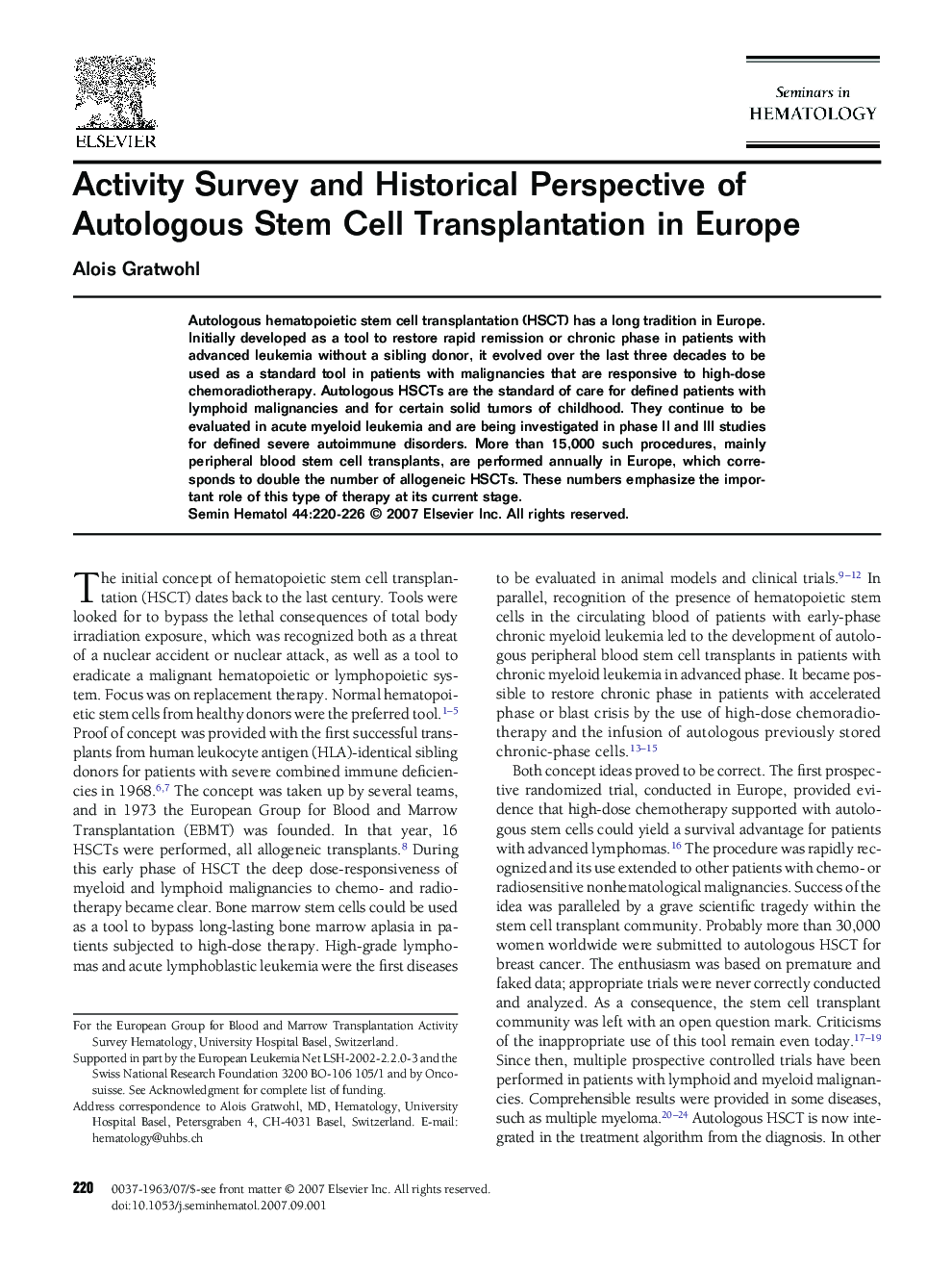| Article ID | Journal | Published Year | Pages | File Type |
|---|---|---|---|---|
| 3333963 | Seminars in Hematology | 2007 | 7 Pages |
Abstract
Autologous hematopoietic stem cell transplantation (HSCT) has a long tradition in Europe. Initially developed as a tool to restore rapid remission or chronic phase in patients with advanced leukemia without a sibling donor, it evolved over the last three decades to be used as a standard tool in patients with malignancies that are responsive to high-dose chemoradiotherapy. Autologous HSCTs are the standard of care for defined patients with lymphoid malignancies and for certain solid tumors of childhood. They continue to be evaluated in acute myeloid leukemia and are being investigated in phase II and III studies for defined severe autoimmune disorders. More than 15,000 such procedures, mainly peripheral blood stem cell transplants, are performed annually in Europe, which corresponds to double the number of allogeneic HSCTs. These numbers emphasize the important role of this type of therapy at its current stage.
Related Topics
Health Sciences
Medicine and Dentistry
Hematology
Authors
Alois Gratwohl,
